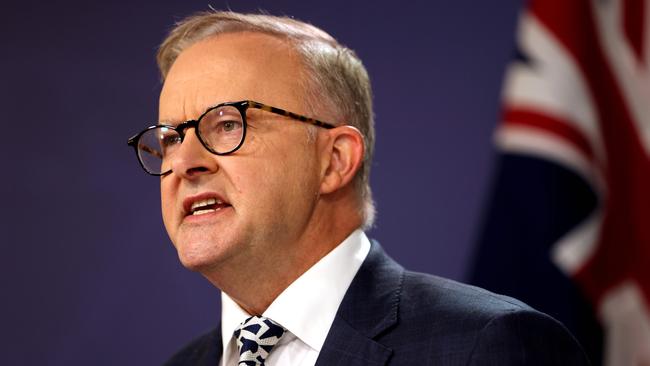Law Council and Australian Human Rights Commission demand overhaul of Anthony Albanese’s deportation powers
Tens of thousands more people could be captured under Anthony Albanese’s deportation powers than the government intended.

Anthony Albanese’s deportation powers meant to force uncooperative immigration detainees to return home could capture tens of thousands more people than the government intended, including women fleeing domestic violence relationships, according to the country’s peak law and human rights bodies.
In new evidence to federal parliament, the Law Council of Australia (LCA) and Australian Human Rights Commission (AHRC) have demanded significant curbs to Immigration Minister Andrew Giles’ proposed powers to deport immigration detainees, who have exhausted all legal options to remain in Australia and ban entire populations from recalcitrant countries from travelling here.
The LCA says up to 29,571 people who have been refused a permanent protection visa could be subject to ministerial removal directions, as well as 2466 people in the legacy caseload of asylum-seekers who arrived in Australia by boat before January 2014, despite the government not targeting these cohorts.
The Department of Home Affairs estimates the Bill could capture 150-200 people in immigration detention, 152 non-citizens released after a NZYQ High Court decision that overturned indefinite detention, 99 people in the community before that judgment and 4463 others. Under the government’s plan, which it unsuccessfully attempted to rush through parliament in two days, Mr Giles and future immigration ministers would be able to add new visa classes to those already subjected to removal directions.
Law Council president Greg McIntyre SC said this measure and the minister’s ability to ban foreign nationals from coming to Australia was a “complete over-reach and disproportionate to the problem the government were seeking to solve”. The LCA and AHRC ultimately want the minister’s ability to expand who can be subject to removal directions scrapped.
“It just places almost no limit on what the minister might decide. The minister could prescribe any visa under removal direction. At the very least there needs to be some criteria by which that decision ought to be made set out in the legislation,” Mr McIntyre said.
“Or the alternative we’ve suggested is that power be limited to being a disallowable instrument so that it would have to go before the parliament before it could be used and the parliament would have the capacity to say ‘no, the minister has gone beyond what the executive government should be doing’.”
AHRC listed three examples of people who could be captured, including a mother on a Bridging E Visa with Australian children who is a victim of family violence and where there is no intention or expectation for her to depart Australia.
The commission also wants the Bill to explicitly exclude any person who has judicial review proceedings on foot, or any other basis to stay in Australia.
The warnings follow concerns from an increasing number of parliamentarians, including eight Labor MPs, who want the ministers’ powers curtailed and mandatory minimum sentences of 12 months for non-citizens who don’t comply with their removal abolished.
The government is eager to legislate its reforms as soon as May in a bid to pre-empt any ruling on the ASF17 High Court case, which could lead to up to 200 non-citizens refusing deportation released from immigration detention.




To join the conversation, please log in. Don't have an account? Register
Join the conversation, you are commenting as Logout